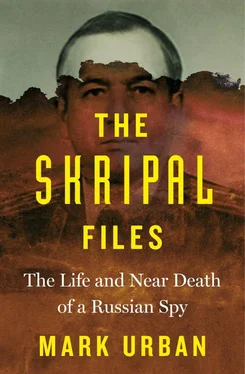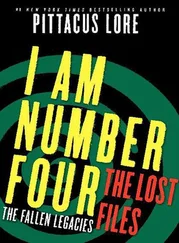All up the GRU had about twenty staff operating in Madrid under Kasatkin. The SVR of course had its own rezidentura and team on top of this. So how did the Russians manage to conceal this large intelligence-gathering operation when there were only twenty-seven accredited diplomats in Madrid and around one dozen at their consulate in Barcelona?
In Spain, as in the UK or US, many of the people engaged in intelligence work were classed as ‘staff’ rather than ‘diplomats’ so they weren’t counted as part of that twenty-seven. This might include the cipher clerks who secured communications with the Centre, as well as drivers, technical officers, secretaries, and so on. While the military attachés’ office was the obvious place one might look, GRU officers in Spain also used covers elsewhere. Some of those in the Madrid offices of Aeroflot and Morflot were also members of the military intelligence service rezidentura. In the early 1980s two successive managers of the Aeroflot office in Madrid had been declared persona non grata, and expelled for espionage activities.
Following the collapse of the Soviet Union, there had been a general sense of every man and woman for themselves. At this time, in many walks of Russian life officials kept turning up at work in their official jobs while inflation reduced the salary to pocket-money level. To supplement this pay they either devoted much of their working day to looking for business opportunities, like Skripal with the hotel project in Malaga, or found ways to make some cash through their official functions. In Madrid, Kasatkin, who was ‘pleasant but ineffective’, had allowed things to slide. As a naval officer in his mid-sixties who had started his career as a cadet during the war, the fall of the USSR and its associated humiliations must have been more than he could bear.
Historically one of the main functions of the GRU had been to obtain examples of Western technology for consignment back home. The hunger for such items was voracious, and might include anything from the night-vision devices for a new NATO tank to the latest computer. Over the years thousands of objects, as well as blueprints, handbooks, and other technical material, were sent back for reverse engineering, allowing Soviet industry to make great leaps in everything from missile-guidance systems to new passenger planes.
This whole system of espionage was financed from a budget quite separate from the Ministry of Defence, coming from the Military Industrial Commission, known by its Russian initials as the VPK.
In the post-war history of the GRU there were some examples of VPK funds being embezzled by unscrupulous officers. These men were punished severely when caught. But in the ‘democratic Russia’ of the mid-1990s discipline was slipping, and in Madrid graft was assuming a more systematic form. According to Skripal, a VPK budget of more than $2m a year had been milked by some unscrupulous officers, overcharging for the items they were obtaining, or maintaining fictitious agents. In order to evade exposure the men concerned had made sure they had top cover back at headquarters – an arrangement that became widely known in the Yeltsin years as a ‘ krysha ’ or roof. In return for giving one of the bosses a cut, you could get away with all sorts of things. And that person at GRU headquarters who was hushing things up, well maybe he needed to keep someone above him sweet also. It was a pyramid of corruption.
This intelligence about people skimming the VPK funds in Madrid was important because it gave MI6 some opportunities. Might it provide also a chance to give the Spanish something back, a favour in kind for the privilege of allowing the British to recruit FORTHWITH?
As they sat chatting in the safe flat Bagnall took Skripal through the people in the rezidentura, assessing who might be open to a pitch. The colonel pinpointed *Yuri Burlatov, a GRU officer with the rank of naval captain working under cover in the Madrid offices of the merchant fleet. Burlatov was a central figure in the effort to gather technological secrets. He had served one tour in Spain during the early 1990s and had returned. Skripal was on good terms with the captain, even if they weren’t close friends, so much so that Burlatov made the gift of a small pistol to him, prior to his departure for Moscow. Leaving aside the pleasantries, the key point was that Skripal mentioned Burlatov to his case officer – he knew about the VPK money all right.
If MI6 had been hoping to gift the Spanish counter-intelligence leads about GRU agent networks in their country, Skripal may have been a disappointment. During decades of the Cold War spy battle, agencies on both sides had learnt the value of strict compartmentalization. In the age of Philby, Burgess, and Maclean, intelligence officers had been notoriously indiscreet, sharing all manner of classified information, with disastrous consequences. As MI6 sought to rebuild allies’ trust it had adopted rigid silos. If intelligence was shared, it was sanitized of detail that could identify its origin. Arguably, the Russians carried things even further.
A British spy for the Soviet Union might have been recruited by the KGB or the GRU. Within these organizations there were separate compartments, or ‘lines’ as the Russians called them, for those providing political intelligence or giving technological information. Most secret of all were the illegal lines run by both the KGB (handed on to its successor, the SVR) and the GRU. Often illegals were run and supported by people entirely separate to the rezidentura in a nation’s capital city. The mole-hunters at MI5 believed that it was this separation of different activities that accounted for the fact that Michael Smith, recruited in the 1970s, was only convicted in 1993. Gordievsky and Mitrokhin had between them produced dozens of counter-intelligence leads, but they could only know what they were cleared to see. It took the defection of Oshchenko in 1992, an officer in the SVR’s scientific and technical line, to reveal Smith’s role as an agent.
Skripal then, while he could give general information about the personalities in the GRU station, had very limited oversight of their agent operations. As much as anything this was to do with his own sensitive role, semi-detached from the rest of the operation. For when the colonel was posted to Spain it was with a special task in mind. The GRU maintained a network of sleeper agents, illegals, in almost every NATO country. It might be dozens strong or it might just be three or four people who, particularly by the mid-1990s, might have lost any enthusiasm for their secret role. The purpose of these illegal networks was intelligence-gathering, reconnaissance, and sabotage in times of war. In the meantime they led completely normal lives and had no contact with anyone from the Russian embassy. The network would only be activated in time of general war, when it might be assumed that the personnel of the regular GRU rezidentura would have been expelled or interned.
So Skripal’s task, while extolling new levels of friendship and cooperation in his embassy cover role, and indeed searching out opportunities in the property business during his spare moments, was to prepare the means to sow havoc in Spain in the event of general war. If one was looking for some tangible meaning behind the MI5 Director K Branch’s assessment that the GRU was an unreformed outpost of the Cold War, holding out against democratic reforms, then this was a good example. For the GRU had cached radios, weapons, and ammunition in secret sites across NATO countries for use in sabotage operations – and it continued to prepare for war as politicians toasted the new post-ideological era.
As the conversations between Bagnall and Skripal continued each weekend through the height of a Castilian summer, the moment for his return to Moscow drew ever nearer. He had already produced a haul of first-rate intelligence, but for MI6 the idea of having an agent inside the stikliashka, GRU headquarters, presented mouth-watering possibilities.
Читать дальше












